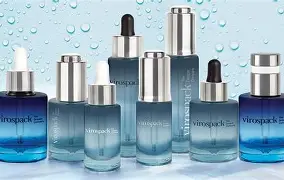Vitamins for Dry Skin A Guide to Repair and Hydration
Dry skin can be a common, frustrating issue that many people experience, especially as we age or face seasonal changes. Often, the solution is closer than we think – certain vitamins play a crucial role in maintaining skin hydration and overall skin health. In this blog post, we will dive into the best vitamins for dry skin, their benefits, and how they can help restore moisture and improve your skin barrier.
Why Vitamins Are Essential for Healthy Skin
Vitamins are vital nutrients that the body needs for various functions, including maintaining healthy skin. Skin acts as a barrier that protects your body from external factors like pollution, weather, and UV rays. However, when your skin is dry, it loses its natural barrier function, leading to irritation, flakiness, and sensitivity.
Many people unknowingly suffer from vitamin deficiencies that contribute to dry skin. Understanding which vitamins to incorporate into your diet or skincare routine can help improve hydration, elasticity, and overall skin health.
Best Vitamins for Dry Skin and Hydration

1. Vitamin A: The Skin Renewal Vitamin
Vitamin A is a powerhouse when it comes to skin health. This essential vitamin promotes cell turnover, helping your skin shed dead cells and regenerate new, healthier ones. When your skin isn’t producing enough fresh cells, it can appear dry, flaky, and rough.
Vitamin A, also known as retinol in skincare products, helps improve the skin’s barrier function, locking in moisture and keeping your skin hydrated. It is particularly useful for dry, aging skin because it promotes the production of collagen, which maintains skin elasticity.
Top Benefits of Vitamin A:
- Helps renew and repair skin cells
- Improves skin hydration and moisture retention
- Reduces fine lines and wrinkles, particularly in dry aging skin
2. Vitamin C: The Antioxidant for Skin Health
Vitamin C is widely recognized for its antioxidant properties, helping protect the skin from free radical damage caused by environmental stressors like UV rays and pollution. It plays an important role in collagen production, which is essential for maintaining skin strength and elasticity.
When skin is deficient in vitamin C, it may appear dull and dry. Regular use of vitamin C-rich foods or supplements can boost skin hydration, improve tone, and reduce the appearance of dryness and uneven texture.
Top Benefits of Vitamin C:
- Protects skin from oxidative damage
- Enhances collagen production for stronger skin
- Evens skin tone and reduces dark spots caused by dryness
3. Vitamin D: The Hydration Helper
Vitamin D is known for its role in bone health, but it also has a significant impact on the skin. Deficiency in vitamin D can contribute to skin conditions like eczema and psoriasis, which can worsen dry, flaky skin.
Vitamin D helps regulate the skin’s immune system and promotes skin cell growth. When applied topically or taken as a supplement, vitamin D can help improve skin moisture levels and repair damage to the skin barrier.
Top Benefits of Vitamin D:
- Regulates skin’s moisture levels
- Enhances skin cell regeneration
- Reduces inflammation and irritation associated with dry skin
4. Vitamin E: The Skin Protector
Vitamin E is one of the most powerful antioxidants for skin. It helps protect your skin from damage caused by UV rays, pollution, and other environmental factors. Additionally, it supports the skin’s natural barrier, helping to lock in moisture and prevent dehydration.
Vitamin E is particularly beneficial for those with sensitive, dry skin, as it helps reduce inflammation and soothe irritation. Applying vitamin E topically or consuming it in your diet can help nourish and hydrate your skin.
Top Benefits of Vitamin E:
- Moisturizes and hydrates skin
- Reduces oxidative stress and skin damage
- Soothes dry, irritated skin
How Vitamin D Affects Skin Moisture

Vitamin D is essential for maintaining healthy skin moisture levels. It works by enhancing the skin’s ability to retain water, which helps prevent dehydration and dryness. Adequate levels of vitamin D can significantly improve your skin’s overall hydration, making it look more supple and radiant.
Research has shown that people with vitamin D deficiencies are more likely to suffer from dry skin and conditions like eczema. Taking a vitamin D supplement or increasing sun exposure (in moderation) can help restore moisture to the skin and reduce dryness.
Vitamin Deficiency Causes of Dry Skin
Vitamin deficiencies are a common cause of dry, flaky skin. When your body doesn’t receive enough of the vitamins it needs, the skin loses its natural moisture and protective barrier. This can lead to a variety of skin issues, including:
- Dry, flaky skin: A lack of vitamins A and D can impair skin renewal and hydration.
- Wrinkles and fine lines: Deficiencies in vitamins A and C can reduce collagen production, leading to signs of aging.
- Skin inflammation and irritation: Insufficient vitamin E can make the skin more prone to inflammation and irritation, exacerbating dryness.
Dry Skin Treatment with Vitamins A, C, D, and E
If you suffer from dry skin, consider incorporating these vitamins into your skincare routine. You can find products that contain these vitamins, such as vitamin C serums, vitamin A retinol creams, and vitamin E oils. Additionally, consuming foods rich in these vitamins, like carrots, citrus fruits, and leafy greens, can support skin health from the inside out.
At-Home Vitamin Deficiency Test for Skin Health
If you suspect that a vitamin deficiency is contributing to your dry skin, it’s essential to address it early. While a blood test from your healthcare provider is the most accurate method of diagnosing a deficiency, at-home tests can provide a quick assessment of your vitamin D levels. Several companies offer at-home kits that measure your vitamin D levels, which can be useful for adjusting your diet and supplement regimen.
Conclusion: Hydrate Your Skin with the Right Vitamins
Incorporating the right vitamins into your skincare routine and diet is essential for combating dry skin. Vitamin A, C, D, and E all offer unique benefits that work together to restore moisture, protect the skin, and improve its overall health. Whether through supplements or topical products, these vitamins are crucial for keeping your skin hydrated and looking its best.
Read our previous blogs about Essential Vitamins for Teenage Guys
FAQs
What are the best vitamins for dry aging skin?
Vitamin A, C, D, and E are excellent for dry aging skin, helping with hydration, collagen production, and reducing fine lines.
How does vitamin D affect skin moisture?
Vitamin D helps the skin retain moisture and regulate hydration levels, improving the overall health of dry skin.
Can vitamin C help reduce dry skin?
Yes, vitamin C protects the skin from damage and enhances collagen production, which helps with moisture retention.
What vitamin deficiency causes dry skin?
Deficiencies in vitamins A, C, D, and E can contribute to dry skin, as these vitamins are essential for maintaining moisture and skin health.
How can I test for vitamin deficiencies related to my skin?
An at-home vitamin D test can help identify deficiencies, but a blood test from your doctor provides the most accurate results.
Are vitamin supplements effective for repairing the skin barrier?
Yes, vitamin supplements can help restore moisture and improve the skin barrier, especially in combination with a healthy diet and skincare routine.
How can I prevent dry skin naturally?
To prevent dry skin, ensure you are getting enough vitamins A, C, D, and E through your diet, supplements, and topical skincare products